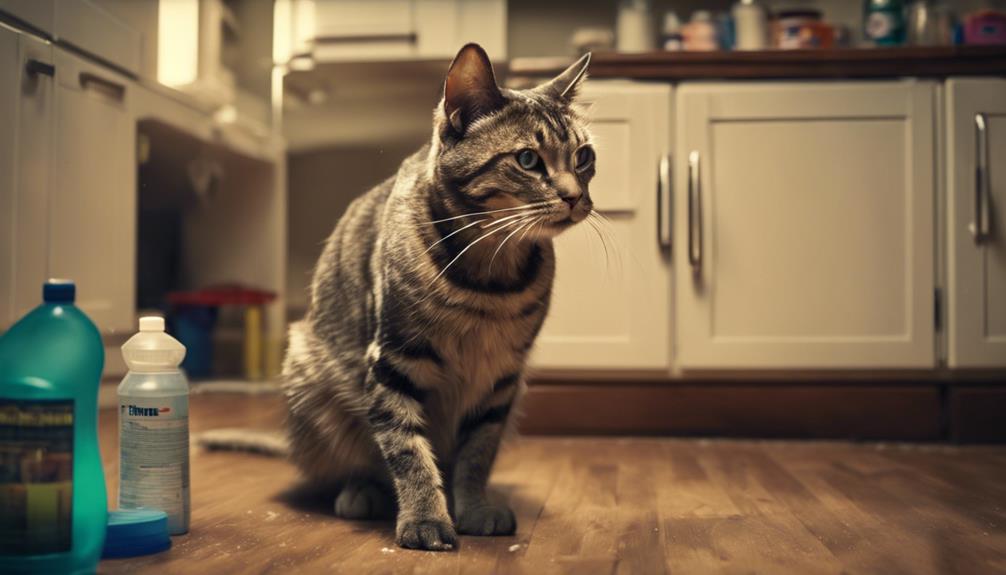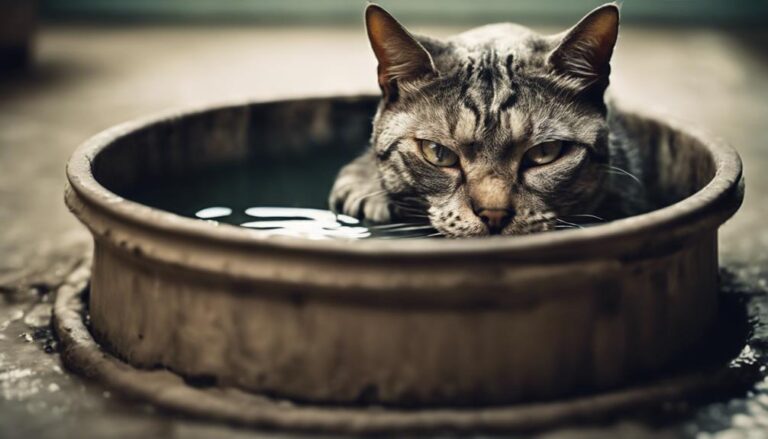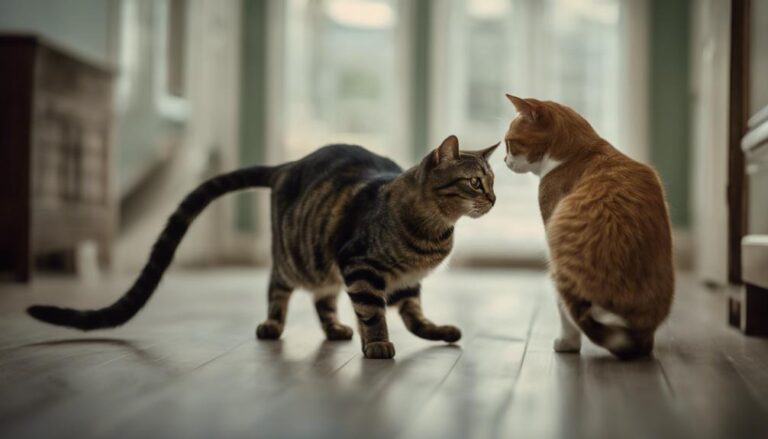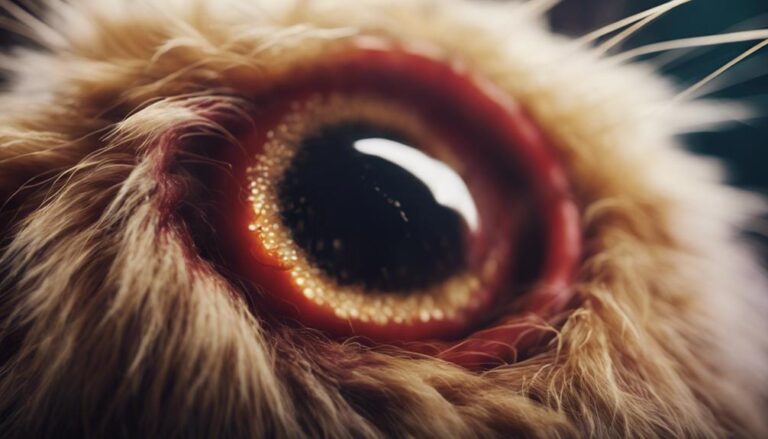If you've ever dealt with the frustration of finding cat pee in unwanted places, you're not alone. Understanding why your feline friend is exhibiting this behavior is key to finding a solution that works for both of you. From medical conditions to stress triggers, the reasons behind this behavior can vary. By exploring the possible causes and effective solutions, you can take steps towards a harmonious living environment with your furry companion. So, let's unravel the mystery behind cat peeing everywhere and discover practical ways to address this issue.
Medical Issues Behind Cat Peeing
If your cat is peeing outside the litter box, medical issues such as urinary tract infections, bladder stones, and kidney disease could be the underlying reasons. Cats are prone to urinary tract infections (UTIs), which can cause discomfort and lead to avoidance of the litter box. Additionally, conditions like bladder stones and kidney disease can result in urinary obstruction, prompting your cat to urinate in inappropriate places.
Feline Lower Urinary Tract Disease (FLUTD) encompasses a range of medical issues that affect the bladder and urethra, contributing to cats urinating outside the litter box. Identifying these underlying medical conditions is crucial in addressing your cat's peeing behavior.
Regular veterinary check-ups are essential to detect and treat these problems promptly, preventing your cat from continuing to urinate inappropriately. Remember, monitoring your cat's urine habits and seeking medical attention at the first sign of trouble can help maintain your cat's urinary health and overall well-being.
Behavioral Factors Contributing to Cat Peeing
Understanding the behavioral factors that contribute to cats peeing outside the litter box is crucial for addressing this issue effectively. Cats may engage in inappropriate urination due to stress, anxiety, or territorial marking. Changes in routine, the environment, or the introduction of new animals can also trigger behavioral issues leading to cats urinating outside the litter box.
Consulting a behaviorist can help identify the specific reasons behind this behavior and provide solutions tailored to your cat's needs. By recognizing and addressing factors like stress and anxiety, you can help prevent inappropriate urination and promote proper litter box habits. It's essential to create a comfortable and stable environment for your cat, ensuring their well-being and reducing the likelihood of behavioral issues.
Remember that addressing behavioral factors is key to resolving your cat's peeing problems effectively.
Litter Box Problems and Cat Peeing
If your cat is peeing outside the litter box, it could be due to issues with the litter box size or location.
Cats have specific preferences for their elimination spots, so ensuring the right size and a quiet, low-traffic area can encourage proper litter box use.
Addressing these factors can help prevent your cat from peeing in inappropriate places.
Litter Box Size
Choosing a litter box that accommodates your cat's size and needs is essential in preventing litter box problems and inappropriate peeing. The size of the litter box plays a crucial role in your cat's behavior. It should be large enough for your cat to comfortably move around and dig. Smaller litter boxes may lead to cats avoiding the box or having accidents outside of it.
When selecting a litter box, consider the size of your cat to ensure it's spacious enough. Providing a spacious litter box can help in the prevention of litter box issues and inappropriate peeing. By ensuring the litter box size fits your cat's needs, you can create a comfortable and inviting environment for your feline friend.
Litter Box Location
To encourage your cat to use the litter box consistently and prevent inappropriate peeing, consider the strategic placement of the litter box in a quiet and private location. Cats prefer privacy when using the litter box, so avoid high-traffic areas that may disturb them.
Ensure the litter box is easily accessible, especially for senior cats or those with mobility issues, to prevent accidents. Placing the litter box in a well-placed spot can deter cats from seeking alternative places to urinate.
Remember that senior cats may need extra care in finding the right location for their litter box to ensure their comfort and convenience. By considering the location of the litter box, you can help your cat maintain good litter box habits.
Stress and Cat Peeing Behavior
If your cat is peeing outside the litter box, stress might be the culprit. Changes in the environment, like introducing new pets or disruptions in routine, can trigger this behavior.
Understanding stressors and implementing behavioral modifications can help your cat feel more at ease and stop inappropriate urination.
Stress Triggers Cat Peeing
Identifying stress triggers in cats is crucial to understanding and addressing inappropriate urination behaviors. Cats can experience stress and anxiety when faced with changes in their environment, such as the introduction of new pets or disruptions in their routine. This stress can lead to anxiety-induced behaviors like peeing outside the litter box.
Providing a stable and calm environment for your cat is essential in reducing stress-related peeing incidents. Signs of stress in cats may include avoiding the litter box. Therefore, it's important to recognize and address stress triggers promptly to prevent cats from engaging in inappropriate urination due to anxiety.
Behavioral Modifications for Stress
Implementing behavioral modifications is essential in addressing stress-related cat peeing behaviors. Cats can exhibit inappropriate urination when stressed or anxious due to changes in their environment.
To help alleviate stress-induced peeing problems, create a stress-free environment by offering quiet retreats and limiting access to new animals or people in their space. Consistency, cleanliness, and the use of pheromone signals play a crucial role in managing stress-related litter box issues.
Identifying and addressing stressors that may be causing anxiety in your cat can aid in returning them to their normal litter box habits. By implementing these behavioral modifications, you can help your cat feel more secure and reduce instances of inappropriate urination.
Environment Impact on Behavior
Creating a calm and predictable environment can significantly impact your cat's behavior, especially when it comes to stress-related urination problems. Changes like new pets or disruptions in routine can trigger stress in cats, leading to inappropriate urination. To manage stress-induced behaviors, provide quiet retreats and safe spaces for your cat to escape potential stressors, reducing anxiety-related urination issues.
It's crucial to identify and address sources of stress, such as conflicts with other pets or lack of resources, to prevent inappropriate peeing behaviors. Seeking professional advice from veterinarians or behaviorists can offer effective strategies to manage stress-related urination problems in cats. By focusing on your cat's environment and minimizing stressors, you can help curb undesirable urination behaviors.
Health Conditions Causing Cat Peeing
Health conditions such as bladder stones, idiopathic cystitis, metabolic diseases, and urinary tract infections can be underlying reasons for a cat's inappropriate urination behavior. When your feline friend starts urinating outside the litter box, it could indicate an underlying medical cause that needs attention.
Here are some key points to consider:
- Feline Lower Urinary Tract Disease (FLUTD) is a common condition that affects cats and may manifest through urinary issues.
- Regular veterinary check-ups are essential to detect any health issues early on and address them promptly to prevent further complications.
- Immediate medical attention is crucial if you notice any signs of urinary problems in your cat, as delaying treatment can worsen the condition.
Understanding and addressing the medical reasons behind your cat's inappropriate urination can help them get back to their proper litter habits and ensure their overall well-being. If you suspect any urinary issues, consulting your veterinarian is recommended for proper diagnosis and treatment.
Environmental Triggers for Cat Peeing
Experiencing changes in your cat's environment can often trigger stress and result in inappropriate urination outside the litter box. Environmental triggers, such as loud noises, new pets, moving homes, or alterations in routine, can lead to anxiety in cats, prompting them to engage in stress-related behaviors like peeing in undesired areas.
Cats are highly sensitive to disruptions in their surroundings, making it crucial to provide a stable and predictable environment to minimize stress and prevent inappropriate urination. Understanding how these environmental triggers impact your cat's behavior is essential in addressing and resolving litter box issues effectively.
Solutions to Prevent Cat Peeing Everywhere
To effectively prevent cat peeing everywhere, regularly providing multiple clean litter boxes in quiet, private locations is key. Cats are particular about their bathroom habits, and maintaining a clean litter box environment can help prevent accidents.
Here are some strategies to help you tackle this issue:
- Rule out medical issues: Ensure your cat receives regular vet check-ups to address any underlying medical problems that could be causing them to urinate outside the litter box.
- Address stress and anxiety: Changes in the environment, separation anxiety, or other stressors can lead to inappropriate urination. Creating a calm and stable environment for your cat can help reduce these behaviors.
- Thoroughly clean soiled areas: Using enzymatic cleaners to eliminate the smell of previous accidents can discourage cats from re-marking and peeing in the same spot.
Frequently Asked Questions
What Will Make My Cat Stop Peeing Everywhere?
To make your cat stop peeing everywhere, address any medical issues, create a stress-free environment with ample resources, schedule regular vet check-ups, maintain a clean and accessible litter box, and consult a behaviorist if needed for behavioral factors.
How Do You Fix a Cat With Behavior Problems Peeing?
To fix a cat with behavior problems peeing, consult a professional for a tailored plan. Modify behavior, change the environment, and consider medications. Stay consistent, patient, and monitor progress. Adjust strategies as needed for success. Your cat can learn better habits with proper guidance.
Why Is My Cat Peeing Everywhere on Purpose?
If your cat is peeing everywhere on purpose, it may be due to stress, medical issues, or marking territory. Addressing the underlying cause is key. Consult a vet or behaviorist to pinpoint the problem and find solutions.
Why Is My Cat Peeing Everywhere Without a Uti?
If your cat is peeing everywhere without a UTI, it could be due to stress, anxiety, or behavioral issues. It's essential to pinpoint the cause to find the right solution. Consult a vet or behaviorist for help.






